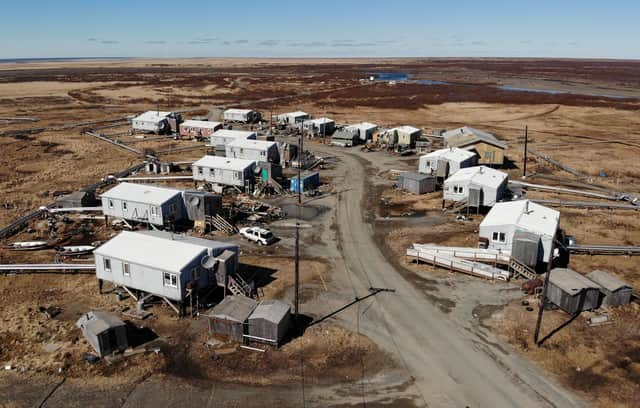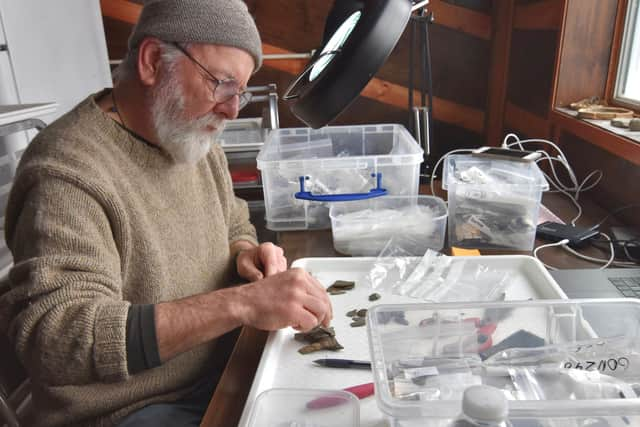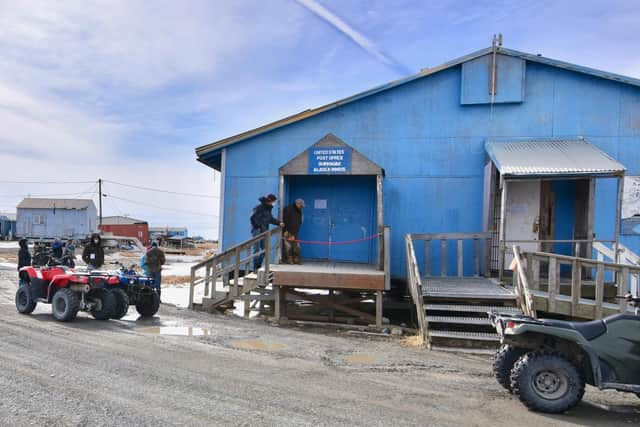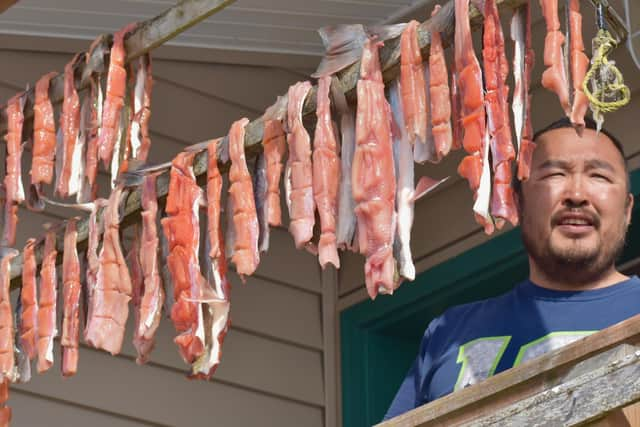Scots academic in lockdown in one of the remotest places on earth


Life in Quinhagak in the south of Alaska is tough and, as one Scots academic is finding out, life in one of the most remote places on the planet during lockdown is even tougher.
Archaeologist Dr Rick Knecht from Aberdeen University has been in the village since October as he leads work on excavating thousands of artefacts of the Yup’ik people from a lost village preserved in the permafrost.
Advertisement
Hide AdAdvertisement
Hide AdAs Covid-19 put the world into lockdown, Dr Knecht was given permission to remain but, coming at the end of an extremely harsh winter, the spell of deep isolation has come with extra challenges.


Dr Knecht said: “It has been a cold winter with wind chills exceeding -60. Caribou have been scarce and for the first time in memory, starving wolves invaded the community looking for food.
“Pipes froze across the village and I’m still without plumbing in my cabin. Unfortunately the villagers now have another threat to contend with. The nearest case of Covid-19 is now in Bethel, some 70 miles away.”
He said supplies were still reaching the village on a regular basis but that hunting was providing extra sustenance. The first runs of salmon will be heading upstream in about a month.
“Trout fishing through the ice has been productive in the meantime and hunters are harvesting and sharing moose and caribou meat,” he added.


Dr Knecht has long travelled to Quinhagak to work at the Nunalleq - or Old Village - site that dates back at least 700 years to a period before western travellers made contact. The frozen tundra has preserved items to a remarkable degree but the site is at risk from rising water levels of the Bering Sea.
When the Coronavirus pandemic started to spread around the world, Quinhagak was one of the first villages in Alaska to go into lockdown.
Dr Knecht said: “Non-residents are forbidden in the village until at least the end of May and any villagers returning from the outside must endure a strict 14-day quarantine, along with members of their household. Masks in public places are mandatory and there are limits on how many customers can enter village stores. I was honoured to be counted among Quinhagak’s residents and allowed to stay. We have become part of the community.”
Advertisement
Hide AdAdvertisement
Hide AdThe Nunalleq Culture and Archaeology Centre, a partnership with Aberdeen University which allows indigenous finds to be preserved locally, remains closed. Dr Knecht is using lockdown time to carefully catalogue the finds with text messages now used to update village elders on the discoveries.


A message from the Editor:
Thank you for reading this story on our website. While I have your attention, I also have an important request to make of you.With the coronavirus lockdown having a major impact on many of our advertisers - and consequently the revenue we receive - we are more reliant than ever on you taking out a digital subscription.Subscribe to scotsman.com and enjoy unlimited access to Scottish news and information online and on our app. With a digital subscription, you can read more than 5 articles, see fewer ads, enjoy faster load times, and get access to exclusive newsletters and content. Visit https://www.scotsman.com/subscriptions now to sign up.
Our journalism costs money and we rely on advertising, print and digital revenues to help to support them. By supporting us, we are able to support you in providing trusted, fact-checked content for this website.
Frank O'Donnell
Editorial Director